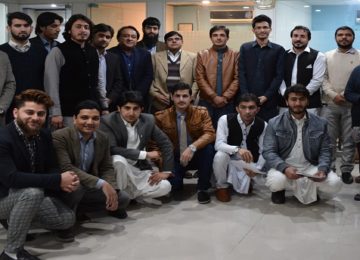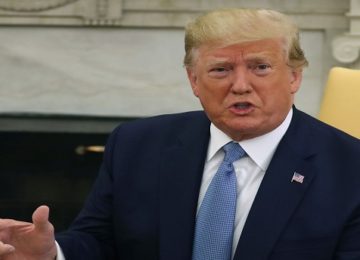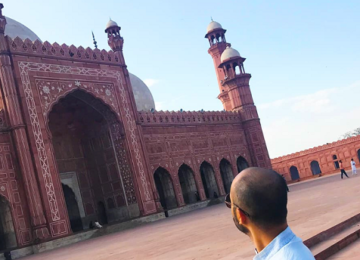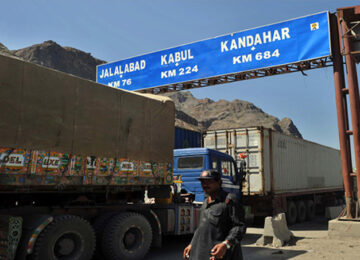August 02, 2019
![]()
Zalmay Khalilzad, Special Representative for Afghanistan Reconciliation, reached Islamabad after wrapping up his engagements in Kabul. He termed his recent visit to the Afghan capital as his “most productive”, since he took the responsibility last year to negotiate a political settlement with the Taliban to bring the nearly 18-year war in Afghanistan to a closure. The veteran diplomat is now in the Pakistani capital to take Islamabad on-board and brief the Pakistani officials about the progress made so far.
Previously, the US negotiator was in Kabul where he met President Ashraf Ghani, top security officials, senior opposition leaders, diplomats, and civil society members to discuss the peace process before striking a deal with the Taliban.
Khalilzad would be leaving for Doha shortly to hold the ninth round of talks with the Taliban, perhaps a decisive one. Highlighting the fact that US and Afghan government are on the same page, the US Special Representative remarked that Washington and Kabul have agreed on the next steps regarding Afghan peace process; a negotiating team and technical support group are being finalized in the same connection. Still there seems a misunderstanding regarding representation of Afghan government.
Clarifying the confusion vis-a-vis post-deal intra-Afghan dialogue between Afghan government and Taliban, Khalilzad enunciated in a tweet that “[talks] will take place between the Taliban and an inclusive and effective national negotiating team consisting of senior government officials, key political party representatives, civil society and women”.
On the other hand, Taliban spokesman Zabihullah Mujahid stated that presently few senior members of the group’s negotiating team were travelling to the Indonesian capital, Jakarta. The talks with US negotiators would resume as soon as they get back to Doha. Though, he did not mention any specific date for the resumption of talks.
According to some news sources, the group’s negotiating team will include five more members, raising the number of Taliban negotiators to 19. The move is being considered as a strategic one in the backdrop of the next round presumably to be a conclusive one.
Likewise, Suhail Shaheen, a spokesman for Taliban’s political office in Doha said, “We have completed consultations with our leaders regarding the talks with the US, now we are ready and waiting for him (Khalilzad) to restart the talks.”
Taliban negotiators have done their part and it is now up to the American side whether they have “made up their mind” and take the next step of winding up the dialogue process, he asserted.
Both Washington and the Taliban have said lately that they were making progress toward reaching a peace deal, which would include a timeline for the withdrawal of foreign troops from Afghanistan and a Taliban guarantee that militants will not plot attacks from Afghan soil.
Any agreement would also require direct talks between the Taliban and representatives of Afghanistan’s government. However, Taliban, to this day, are refusing to sit across the Kabul regime – in the capacity of Afghanistan’s government. Though, they showed some flexibility talking to the regime officials in their individual capacity.
In parallel, President Donald Trump, as part of his election campaigns, wants combat forces of the United States and its allies reduced in Afghanistan before the next US presidential election in November 2020. This would not only make way for the fulfillment of Trump’s promises – made in the last elections. Plus, this also resonates with Trump’s vision for looking inwards and addressing national issues first.
In the context of the hopes raised for peace, many Afghans fear a US troop withdrawal announcement will weaken their bargaining power with the hardline Islamist group, which aims to re-establish an Islamic emirate to replace an elected government it dismisses as puppets of foreign forces.
Women’s rights groups in particular worry about the fate of women and girls in the event of the return of the Taliban, who banned girls’ education and imposed severe restrictions on women’s rights to work outside the home. In contrast, Taliban have recently assured that the group will ensure all the human and women’s rights falling within the ambit of Islam.
In case the peace deal materializes, international guarantors, possibly China, Russia, the United Nations, and neighbors of Afghanistan, including Pakistan and Iran, will probably witness the signing of the US -Taliban agreement.
© Afghan Studies Center (ASC), Islamabad.








